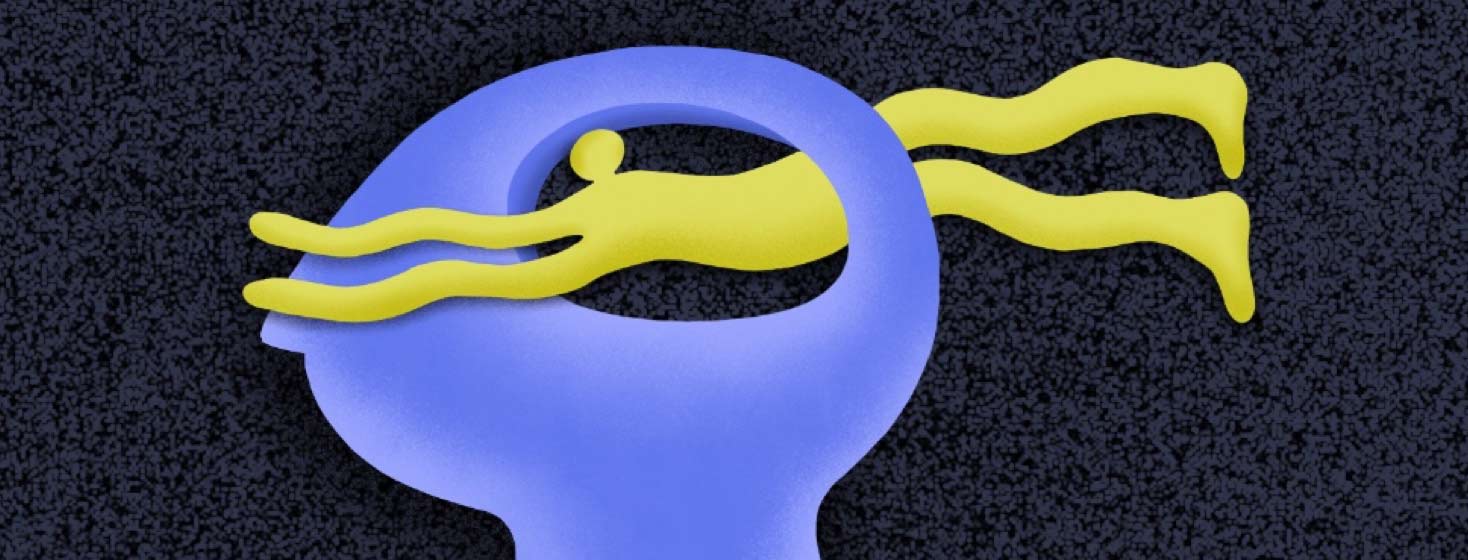Psychological Flexibility: Why It Matters
Sickle cell is a progressively debilitating blood disorder that can be extremely draining because of its unpredictability. People with sickle cell disease (SCD) must pay attention to warning signs that could signal a health threat or further complicate their condition.
For many patients, increased pain crisis episodes lead to frequent hospitalizations. Those hospitalizations trigger stress, feelings of anxiety, and/or symptoms of depression. In short, the psychological impact of SCD can become incredibly taxing on a person's mental health.
Mental health challenges of SCD
Pain and symptoms related to chronic pain have significant effects on patients who tend to feel sad, fearful, irritable, frustrated, or anxious. These patients also experience health-related stigma; forced to navigate a society in which their skin color is often an unfair disadvantage.
Depression and anxiety with sickle cell
According to a paper reviewing 36 studies (6936 adults, total), the prevalence of depression among those with SCD was 24.01%. Patients with SCD and depression often require longer stays in the hospital, leading to increased out-of-pocket medical costs. As with many chronic conditions, it's difficult to assess depression prevalence due to overlap of disease symptoms (fatigue, sleep disturbances, etc.).1
Feelings of anxiety plague adults with SCD, which can directly lead to worse pain symptoms and increased fatigue. This affects daily activities and drains social and emotional energy.
Sleep challenges
Furthermore, patients with SCD may experience obstructive sleep apnea, making difficult to enjoy deep sleep because of snoring, reduced lung function, and lower oxygen intake.
According to medical experts, shorter sleep durations can cause behavioral problems, daytime sleepiness, and increased tiredness. Individuals with SCD who are dealing with mental health issues are encouraged to share these concerns with their doctors. Preferably, you can also request to meet with a licensed counselor or therapist. Counseling can help the patient cope better with challenging feelings, improving mental health outcomes.2
Where patients get stuck
Life was more difficult before I was able to access mental health support. I found myself actively trying to control my thoughts and feelings about living with a chronic illness like sickle cell. I would shut my mind to new treatment options, new ideas, or new approaches.
Inflexibility
For most of my adult life, I was resistant to change and became stuck in the past. I held on to painful memories and negative thoughts. This concept is called psychological inflexibility. Over time, you become rigid and constantly miss out on the present moment. When you lose sight of the present, you start lacking self-knowledge and self-awareness by wasting time dwelling on the past.
Avoidance
On the contrary, some patients choose to use avoidance as a coping mechanism. Avoidance is steering clear of uncomfortable emotions and painful memories by refusing to accept them. In an attempt to avoid pain, you push away painful thoughts and convince yourself it will “make it all go away.”
Experiential avoidance is choosing to run away from activities, relationships, and opportunities as a form of self-preservation. People practice avoidance through self-medication with alcohol or drugs, or excessive sleep/television to avoid short-term pain. In the book 'The Charge' by Brendon Burchard, he describes avoidance as the best short-term strategy to escape conflict and the best long-term strategy to ensure suffering.3
Psychological flexibility and sickle cell
Psychological flexibility involves staying in the present moment, staying open to whatever thoughts and feelings show up (good or bad), and taking action in service of your values. It is a core concept of the Acceptance and Commitment Therapy (ACT) model. Psychological flexibility matters to me because it's taught me how to take proactive steps instead of reactive actions.
Resilience
The concept of resilience is closely related to the construct of psychological flexibility, which is the ability to act in alignment with your values and long-term goals in the presence of inner discomforts such as pain and distress. Resilience is defined as the ability to adapt and overcome adversity despite stressful circumstances.
However, research has shown that living with chronic pain requires emotional resilience that oftentimes depletes our emotional reserves. More recently, I've started to recognize the key benefits of psychological flexibility when it comes to emotion regulation and value-based behavior.
Psychological flexibility helped me cope
Embarking on a stem cell transplant was challenging to some degree, particularly when thoughts of an identity crisis coupled with survivor's guilt started to impact my mental health.
I needed a coping strategy. Psychological flexibility helped me tackle stress, anxiety, and post-traumatic stress disorder after transplantation.

Join the conversation